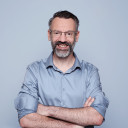Building on the 2020 symposium, which dealt with public history and public participation in museums, this 2021 event focuses on the multiple and diverse narratives in participatory history. Reinforced by ideology, identity, memory, and personal stories, public participation can enrich history and foster a variety of perspectives that may compete or complement one another. Navigating diverse experiences and perceptions of the past raises the matter of diverse interpretations of historical narratives and their possible inclusion in historiography and museums. This plurality can affect historical narrations, especially within highly conflicting societies, where the perceptions of historical facts can be very diverse and sometimes even incompatible. Museums can be battlegrounds for political discussions, seeking to mediate between often emotionally, and sometimes ideologically, charged discourses about the histories of nations, individuals, and identities.
The 2021 symposium will bring together scholars, museum and archives professionals, heritage and other public history practitioners to discuss if and how multiple and sometimes conflicting historical narratives can coexist in museums.
We welcome submissions that discuss and demonstrate specific participatory projects and approaches addressing the multiplicity of historical narratives in museums, as well as those that address broader methodological and epistemological issues pertaining to the approaches to polyvocality in historiography and museums.
Possible themes include but are not limited to:
- Multiple perspectives and polyvocality in museums
- Conflicting narratives, challenges and clashes in museums
- The negotiation of collective narration and power in participatory practices
- Public participation and conflict-resolution
- Cultural and memory wars in museums
- Agonism and dealing with conflicting interpretations
- Approaches to conflicting narratives and interpretations of the past
- Shared authority and the evolving role of historians within the context of participation
- Museums in post/conflict societies
- How can we exploit participatory practices to achieve multifocality in historical narratives?
- How and to what extent can digital tools be involved in this process?
- Can digitisation expand museums’ possibilities of adapting to polyvocality?
- Public participation and identity politics in museums
- Museum as a (non) neutral environment
- Museums as a stage for activism and social justice
- Reinventing the public space in museums
We are, of course, open to other proposals/ideas related to the main topic of the conference.
Submission
Presentations (15 to 20 minutes) will be delivered online and in English.
To apply, please send
- a 500-word (in English) abstract of the presentation
- a short biography (in English) (200 words max) including name, institutional affiliation, and email address
Send your documents to phacs@uni.lu before 30 September 2021.
Important dates
- 30 September 2021: Deadline for abstracts
- 1 November 2021: Notification of acceptance/rejection
- 7 December 2021: Symposium (keynote speech on the evening of 6 December, between 18.00-20.00 Central European Time) (7 December, tentatively 9:00 – 17:30, Central European Time)
Scientific Committee
- Anna Adamek (Director of Curatorial Division of Ingenium Canada)
- Blandine Smilansky (House of European History, Brussels, Belgium)
- Camilla Elisa Portesani (PHACS - C²DH, University of Luxembourg)
- Emilie Sitzia (Arts and Heritage, Maastricht University, The Netherlands)
- George Lawson (PHACS - C²DH, University of Luxembourg)
- Lars Wieneke (C²DH, University of Luxembourg)
- Thomas Cauvin (PHACS - C²DH, University of Luxembourg)
- Valérie Schafer (C²DH, University of Luxembourg)
Contact
For any questions, please contact us at phacs@uni.lu
The symposium is made possible thanks to the ATTRACT grant from the Luxembourg National Research Fund.



